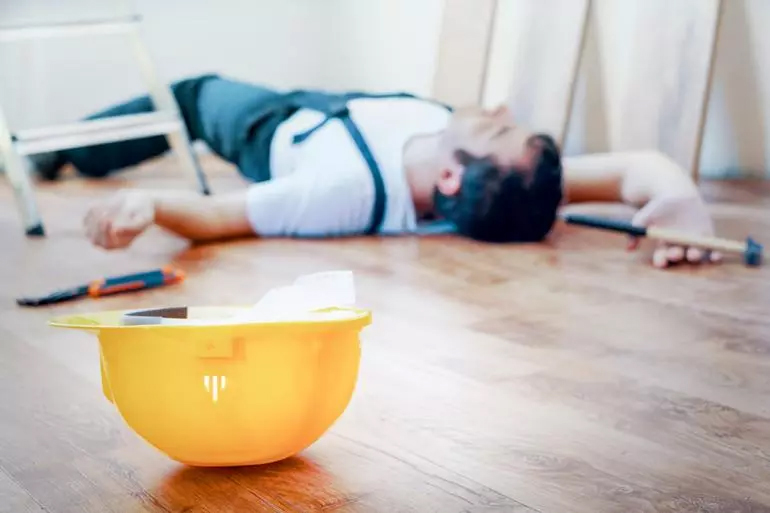A brick and stonework restoration company, Brick Restoration Ltd, and its two directors, Stewart Bailey and John McCole, have been fined and ordered to carry out community service following the death of a construction worker using a dichloromethane (DCM) -based paint stripper in a confined space.
The use of Dichloromethane as a paint stripper is prohibited unless it is for professional use by a competent person who has completed the Health & Safety Executive (HSE) competence training scheme and is certified. The course can be carried out online.
Products containing DCM should not be sold to people who do not have not the certificate. If you want to take the course, call Mark Priestman on 07876 687212, or email him on mark@priestmanweb.com. More advice on using DCM can be downloaded from the Health & Safety Executive (HSE) website here.
In the Brick Restoration case, Alexandru Sorin was overcome by dichloromethane (DCM) vapour at a property in London on 25 July 2017.
He was working on his own stripping paint from the walls of a lightwell in the basement of Berkeley Gardens, London. DCM vapour is heavier than air and can accumulate in confined spaces with poor ventilation. While carrying out the work, Mr Sorin was overcome by the DCM vapour and died from the exposure.
An investigation by the HSE found that Brick Restoration Ltd failed to implement any effective measures to control Mr Sorin’s exposure to DCM. It concluded that his death could have been prevented by eliminating the risk associated with DCM by using a different paint removal method or by substituting the DCM paint remover for a less hazardous product.
At City of London Magistrates’ Court on 21 July, Brick Restoration Ltd of Worboys Road, Worcester, pleaded guilty to breaching Regulation 7(1) of the Control of Substances Hazardous to Health Regulations 2002 and was fined £50,000 with £2,805.64 costs.
Stewart Bailey of Worboys Road, Worcestershire, pleaded guilty to breaching Section 37(1) of the Health & Safety at Work etc Act 1974 and was sentenced to 200 hours community service and ordered to pay costs of £2,805.64.
John McCole of Savill Gardens, London also pleaded guilty to breaching Section 37(1) of the Health & Safety at Work etc Act 1974 and was sentenced to 200 hours community service and ordered to pay costs of £2,805.64
Speaking after the hearing, HSE inspector Owen Rowley said: "Mr Sorin’s death was entirely avoidable. DCM is a volatile solvent and exposure to high concentrations of vapour can cause loss of consciousness and death.
"Anyone intending to work with DCM-based products should carry out a suitable and sufficient risk assessment and implement appropriate control measures. Crucially, DCM-based products should only be used in well ventilated areas to prevent the build-up of vapour.”

